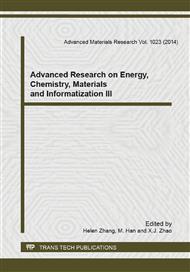p.247
p.252
p.257
p.262
p.266
p.270
p.275
p.279
p.284
Energy Attitude and Energy Instructional Strategy of Science and Technology Teacher Based on Environment Protection in Junior High Schools in Taiwan
Abstract:
The purpose of this study was investigated the relationship between information education of energy attitude and energy instructional strategy of science and technology teacher in junior high schools in Taiwan. With the questionnaires and statistic analysis of 618 teachers, we found the energy attitude of teachers is positive and they made good use of energy instructional strategies. The energy safe attitude of teachers whose age are 41-50 years old were better than those below 28 years old and 29-33. The energy safe attitude of teachers who worked for 16-25 years were better than those below 5 years and 6-15 years. And the saving energy attitude of teachers who taught in school above 49 classes were better than those below 12 classes. At the same time we found the infusing question strategy and cognitive-oriented strategy of teachers whose age were 41-50 years old made better use of than those age were 29-33 years old. The energy attitude could forecast the using situation of energy instructional strategy especially in infusing question strategy, cognitive-oriented strategy and total energy instructional strategies.
Info:
Periodical:
Pages:
279-283
DOI:
Citation:
Online since:
August 2014
Authors:
Price:
Сopyright:
© 2014 Trans Tech Publications Ltd. All Rights Reserved
Share:
Citation:


